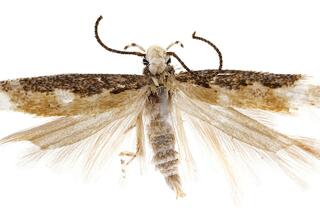What’s in a name? FDA, on high fructose corn syrup, says lots
It appears high fructose corn syrup will still be called high fructose corn syrup.
On Wednesday, the Food and Drug Administration denied a petition by the Corn Refiners Assn. (filed in 2010) to allow “corn sugar” as an alternate name for HFCS.
The letter, sent to Audrae Erickson, president of the Corn Refiners Assn., rejected the petition for a variety of reasons. Some seemed a little pedantic -- syrup, in the public’s mind, is liquid, whereas sugar is generally deemed solid and crystalline, the FDA said -- but others more significant.
For example, some people have fructose intolerance and they use dextrose as a sweetener, noted Michael M. Landa, director of the Center for Food Safety and Applied Nutrition at the FDA, in the letter. Guess what another name for dextrose is on food labels? Corn sugar. The Corn Refiners Assn. wanted that name prohibited for dextrose so that they could use it for HFCS instead.
“The term ‘corn sugar’ has been used to describe dextrose for over 30 years,” Landa wrote. Doing a switcheroo to have “corn sugar” now refer to HFCS could put people with hereditary fructose intolerance or malabsorption at risk, he said.
Erickson, of the Corn Refiners Assn., in turn, noted that if high fructose corn syrup isn’t sugar, why, then, does HFCS content end up displayed in the “added sugar” portion of nutritional labels?
The Sugar Assn. expressed delight. It has for years maintained that the word “sugar” belongs to its own product, the familiar white crystal derived from sugar cane and sugar beets. Sugar farmers and refiners have filed a lawsuit, still pending, against the Corn Refiners Assn. for its ad campaign that claims “sugar is sugar” and “your body can’t tell the difference.”
In a May 24 news release, the Sugar Assn. reiterated its assertion that “There’s Only One Sugar…And It’s Not High Fructose Corn Syrup” and took issue with a recent “rash of inaccurate reports about all-natural sugar.” It decries reference by news media to “sugary sodas” and “sugar-sweetened soft drinks” because they mostly are sweetened with “high fructose corn syrup, not sugar,” and ditto for articles with headlines such as “Sugar can make you dumb” because they were based on a study with rats consuming fructose “and did not test the effect of all-natural sugar.”
Hold your breath: The Corn Refiners Assn. refers to the Sugar Assn.’s release as the latest in a long “misinformation campaign.”
Everybody should probably go and stand in the corner and be denied sugary (sorry, sweet) treats for a month.
Let’s get into the pedantic, combative spirit of things, shall we? The Sugar Assn.’s assertion that theirs is the only true “sugar” is at odds with what anybody learns in biochemistry and organic chemistry classes. Whatever one may think of the potential for consumer confusion by renaming HFCS and whether it’s sneaky and/or misleading of the Corn Refiners Assn. to try to do it, it is a fact that sucrose is not the only kind of sugar. There’s glucose, lactose, fructose, maltose, mannitol, galactose, threose, ribose, deoxyribose, hamamelose, arabinose, sedoheptulose ... and lotslotslotslotsmorathose.
Here is a website that will make one’s head spin from all its sugary chemical talk. And if that isn’t enough, for some nice relaxing reading try “The Organic Chemistry of Sugars” -- note plural! -- where people can learn a lot more about the scintillating world of sugars than a tiny teaspoonful of us would probably want.
Here are some shrewd remarksby Marion Nestle, a nutrition professor at New York University and author of a blog called Food Politics.
First of all, she applauds the FDA decision. She said she filed comments to the FDA stating that “the name change is not in the public interest. Its only purpose is to further the commercial interests of members of the Corn Refiners, and that is not one the FDA should be concerned about.”
But she adds that “the Sugar Association’s behavior is not much better” and believes, like many nutrition scientists, that there is not much evidence to suppose that these various sweeteners are physiologically much different in terms of what they do to our health.
“Sugars, plural, are sugars. Sucrose is glucose and fructose. So is HFCS,” Nestle said. “Everyone would be better off eating a lot less of both.”
More to Read
Inside the business of entertainment
The Wide Shot brings you news, analysis and insights on everything from streaming wars to production — and what it all means for the future.
You may occasionally receive promotional content from the Los Angeles Times.










